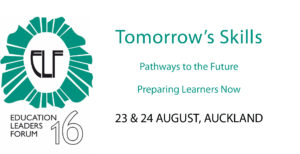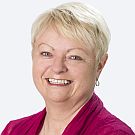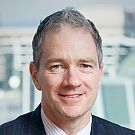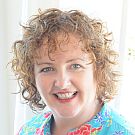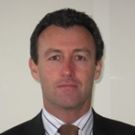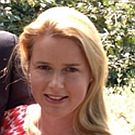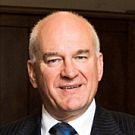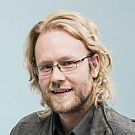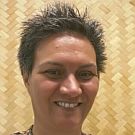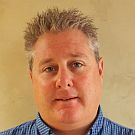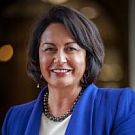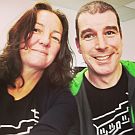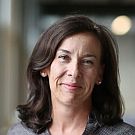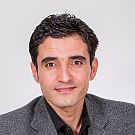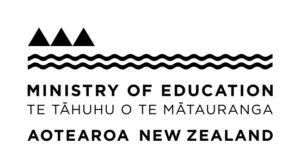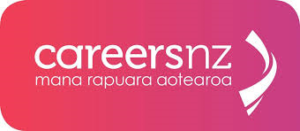“…we’re about to be late for tomorrow.”
Alvin Toffler, author of Future Shock b. 4/10/28 d. 27/6/16
Ian Jukes
Founder and Executive Director,
InfoSavvy Group
Hon Hekia Parata
Minister of Education
Dr Cheryl Doig
Leadership Futurist,
Think Beyond
Josh Williams
CEO,
Industry Training
Federation of New Zealand
Keith Marshall
Chief Executive,
Careers New Zealand
Tim Fowler
Chief Executive,
Tertiary Education Commission
Nina Sochon
Team Activator & CEO,
Transformed Teams
Dr John Boereboom
Director,
Centre for Educational
Evaluation and Monitoring (CEM)
Siobhán Hanley
Director Potential,
Work Wellbeing
Karl Le Quesne
Associate Deputy Secretary,
Early Learning and Student Achievement
Ministry of Education.
Miranda Satterthwaite
STEM Coordinator.
Ara Institute of Canterbury
Trevor McIntyre
Secondary Tertiary Lead,
Youth Guarantee,
Ministry of Education
Dan Milward
Founder,
Gamefroot
Huia Hanlen
Secondary-Tertiary Lead Advisor,
Youth Guarantee,
Ministry of Education
Jenny Baber
Secondary-Tertiary Lead Advisor,
Youth Guarantee, Ministry of Education
Dr Lucy Hone
Consultant,
The 100 Percent Project
Mark Hellyer
Director,
Pacific Coast Technical Institute
Kirsten Browne & John Hart
Co-founders,
Fab Lab Masterton
Kirk Hope
Chief Executive,
BusinessNZ
Nicky Mohan
Managing Partner of InfoSavvy,
co-author of Reinventing Learning for the Always-On Generation
Angela Clemens
Education Manager,
Commission for Financial Capability (CFFC)
Tariq Habibyar Phd
Work Searcher/Job Seeker
BIOS and TOPICS
IAN JUKES – Founder and Executive Director, InfoSavvy Group
Ian Jukes is the founder and Executive Director of the InfoSavvy Group, an international educational leadership consulting firm with offices in Vancouver and Auckland. He has been a classroom teacher – teaching every grade from Kindergarten to Grade 12, a school, district, and provincial administrator, a university instructor, an author, an international consultant, and a keynote speaker.
Ian has worked with clients in more than 80 countries and made more than 12,000 presentations. He typically speaks about 200 days a year to more than 250,000. He is the author or co-author of 17 books and 9 educational series. His most recent books include: Reinventing Learning for the Always-On Generation, Learning Without Classrooms, Teaching the Digital Generation, Living on the Future Edge, Understanding the Digital Generation. Literacy Is Not Enough, and Getting It Right: Aligning Technology Initiatives for Measurable Student Results. He is currently working on 4 new books on educational transformation including When ET Meets IT: The Place of Technology in Modern Learning, A Brief History of the Future of Education, Education in the Age of Disrupted Learning, and Teaching with the Future in Mind: An Introduction to Modern Learning.
Ian was the creator of the 21st Century Fluency Project; and is the catalyst behind the Springboard21 Diagnostic and Reporting Tool. In keeping with modern times, Ian has created a vast digital library of educational resources and best practices that he shares with his many clients through his blog and extensive Twitter following. He is also a great believer in paying things forward and acts as a mentor to other educational professionals, supporting them to write books, develop workshops and presentations, and grow professionally.
Outside of education, he works with government, banking, medical, entertainment, and insurance industries, as well as with organizations and communities that have lost their market or economic base and wish to explore possibilities for preferred economic futures.
Organisations Ian has worked with include: The US Federal Reserve, The World Bank, UNESCO, IBM, Hewlett Packard, Apple Computers, Singapore Ministry of Education, European Council of Independent Schools, Thailand Ministry of Education, Hong Kong Ministry of Education, New South Wales Department of Education, New York Department of Education, Turkish Ministry of Education, Harvard University, Massachusetts Institute of Technology, Princeton University, Washington State Department of Education, Ministry of Education, British Columbia.
But first and foremost, Ian is a passionate educational evangelist. From the beginning, Ian’s focus has been on the compelling need to restructure our educational institutions so that they become relevant to the current and future needs of the digital generations – and to prepare them for their future and not just our past.
Topic: Welcome to the Digital Revolution: Education in the Age of Disrupted Learning
In today’s digital world, we are witnessing the evolution of an incredibly turbulent new age. It’s the Age of Disrupted Learning—an age where every part of society is experiencing a complete upheaval due to the chronic and pervasive nature of disruptive change. In order to thrive, our schools, like our businesses, communities, and families, must continually adapt to these changing conditions.
This presentation examines the changing nature of our world; identifies the critical 21st-century skills not being addressed by our current educational system; and specifically identifies how we can effectively engage learners so that they can perform exceptionally well on exams while simultaneously learning the critical new basic skills needed to excel in both school and life beyond school. Prepare to have your assumptions about education challenged. Counselling will be provided.
Workshop – Thinking in the Future Tense: Looking Back, Looking Forward
Workshop Facilitators: Ian Jukes and Nicky Mohan
As education leaders and practitioners we are driven by the tyranny of the urgent into focusing on short-term goals. Forced to operate in reactive mode we lose sight of what is important for the futures of our learners. To adequately prepare students now for their individual pathways to the future, we need to shift both our and their thinking. This high participation workshop will demonstrate “how to think in the future tense”. Thinking in future tense means bi-focally viewing educational policies and practices as a split screen, where one eye focuses on short-term goals and the other eye focuses on the future. Participants will discover what it means to think in future tense; how this technique applies across the learning spectrum from early childhood to post tertiary education and training; and why it is so important that our current educational paradigms respond to the challenges of the modern world so we can prepare both ourselves and our students for the world of tomorrow.
DR CHERYL DOIG – Leadership Futurist, Think Beyond
Cheryl is a leadership futurist and curator of leadership ideas. She follows leadership trends and research and translates these into practice, working internationally and virtually with organisations, business leaders and educators. Her passion is for challenging organisations to think differently in order to adapt to a changing future – to think beyond their current leadership realities, while still using the best of the past.
Cheryl has been a highly successful school principal, teaching fellow in Education Management, and school reviewer. As a principal, Cheryl led both Richmond and Fendalton schools to achieving national recognition for their standards of excellence in education, including being awarded Goodman Fielder School of the Year. Cheryl has also received a number of prestigious awards for leadership in education, including the Beeby Fellowship and the Woolf Fisher Fellowship.
Cheryl has served in a number of governance roles, both locally and nationally, including the NZ Institute of Management, the Food for Thought trust, Core Education Ltd and a number of establishment boards for new schools. She is currently a director of the NZ Brain Research Institute, an Establishment Board member of Haeata Community Campus and a member of the NZ Institute of Directors. Cheryl is a full member of the Association of Professional Futurists and the World Future Society.
2016 projects include the curation of a book on Collaboration and a strategic role in Grow Waitaha, a Ministry of Education initiative to support educational change in Christchurch.
An experienced speaker and writer, Cheryl is a professional member of the National Speakers’ Association of New Zealand (NSANZ) and a member of the Global Speakers’ Federation.
Topic: How best can education leaders engage their learning communities in responding to the global and local trends impacting on education?
In order for learners to thrive in disruptive times they need to be creative, collaborative and courageous. The NZ Curriculum espouses these needs perfectly – it’s the mindframes of education leaders and educators that need to change. Cheryl will describe what must become part of the fabric of every learning organisation in order to remain relevant. She will explore the implications for education and beyond, sharing the story of Haeata Community Campus, a Year 1-13 school being established in Christchurch.
Workshop – Pathways for the Future: Why *Soft Skills and Collaboration are Key
The world is shifting, driven by the key trends of globalisation and technology. In order to thrive as *learning communities and as a planet we need to work together and be able to take responsibility for ourselves. It requires us to think more of ecosystems and leadership rather than single cells and leaders. Our work is increasingly ambiguous, and change is increasingly exponential rather than linear. Adaptive leadership is needed for such complex times.
Collaboration is a key competency for adaptive leadership, but isn’t as easy as it sounds. It’s not enough to design new workspaces and schools to be more flexible physically; and it’s not enough to put people in teams, clusters or communities and expect magic to happen. Collaboration requires the intentional development of soft skills – and that is hard work! This workshop will explore some examples of diverse organisations working together in ways that couldn’t be achieved alone. This is about pushing the boundaries, emergent practice and outwards mindsets.
JOSH WILLIAMS – CEO, Industry Training Federation of New Zealand
Josh Williams is Chief Executive of the Industry Training Federation, the collective voice for New Zealand’s industry training and apprenticeship sector.
Josh has worked in education both inside and outside of government. Prior to rejoining the ITF Josh was a Senior Policy Manager in Tertiary Policy at the Ministry of Education, leading policy for vocational and foundational education, and secondary-tertiary transitions.
Josh was programme manager for the implementation of Youth Guarantee initiatives, and led the development of Vocational Pathways, recognised as an example of successful government and industry partnerships.
Josh has held roles at the New Zealand Qualifications Authority and Office of the Minister of Education, including secondary and tertiary qualifications development, quality assurance, schools regulatory policy, and policy for at-risk students.
His first job at the Ministry of Education was typing up achievement standards, in the lead-up to the implementation of NCEA.
Topic: Pathways to a Skilled Future – Managing transitions from education to employment
Over the last few years, the Industry Training and Apprenticeships sector in New Zealand has worked with the government to establish vocational pathways for students. The pathways are designed to help students navigate the journey between education and employment, and make clearer links between educational choices and the world of work.
Josh’s own career has allowed him to observe issues around careers and transitions from secondary education, tertiary education, and industry perspectives. This includes the NCEA developments, policies for at-risk students, and the development of Vocational Pathways. In his presentation, Josh will outline his observations on how employers and educators alike can do to ensure our young people make successful transitions from school to their next steps in further education and employment.
KEITH MARSHALL – Chief Executive, Careers New Zealand
Keith Marshall is Chief Executive at Careers New Zealand, a position he has held since May 2014. He has extensive experience in the education sector, having been a past deputy chief executive of New Zealand Qualifications Authority, the New Zealand representative on the Australian qualifications framework board, and the leader of various international bilateral education discussions.
Keith started his career as an IT systems analyst and programmer. He has gone on to hold a number of senior leadership roles in the public and private sectors. Keith’s diverse career highlights include owning Thrifty Rental Cars New Zealand, managing the last nationwide health reforms, and participating in the New Zealand-China Free Trade Agreement.
Topic: Career ready – challenge and opportunity
The education and employment landscape continues to rapidly evolve providing us with more and more complex challenges and some great opportunities to prepare for very different career futures. Keith Marshall gives an insight into how we can think about ensuring people are career ready in our rapidly evolving future.
TIM FOWLER – Chief Executive, Tertiary Education Commission
Tim Fowler is Chief Executive of the Tertiary Education Commission, a position he has held since April 2013. He was previously Deputy Chief Executive, Quality Assurance at the New Zealand Qualifications Authority. Tim has held international and management positions in Australia and New Zealand in both the private and university sectors after starting his career in the Department of Prime Minister and Cabinet.
Tim has an Honours Degree from Victoria University, a Masters from the East-West Center and the University of Hawaii, and executive education from the Wharton School at the University of Pennsylvania and INSEAD.
Topic: Flexibility of Funding Models
NINA SOCHON – Team Activator and CEO, Transformed Teams
Nina Sochon is a Team Activator and the CEO of Transformed Teams. She partners with leaders and their teams to transform their teamwork so they enjoy incredible results and rewarding work.
Nina has a leading role in the conversation about the future of work. She has spoken at national conferences in New Zealand and Australia on this topic. Together with her associate, Siobhán Hanley, Nina co-authored an executive guide on creating a future-ready workforce, released in April this year. She led the Australian Government’s strategic initiatives to increase work from home and wrote the Australian flexibility toolkits for employers. Nina is currently advising the New Zealand Labour Party’s Future of Work Commission.
Nina believes the future of work belongs to those who actively engage with the way the world is changing. New strategies are needed and yet they are not new at all.
Nina is a consultant, mediator, trainer and coach. She is based in Wellington and works with businesses and organisations throughout New Zealand and Australia. www.transformedteams.co.nz nina@transformedteams.com.au www.linkedin.com/in/ninasochon www.facebook.com/transformedteams/ Twitter: @NinaSochon
Topic: Transformed Work – Creating a future ready workforce
The key to navigating the future is developing flexible, resilient and high performing individuals and teams that are innovative and productive.
Nina Sochon is sharing this presentation and workshop with Siobhán Hanley, Director of Potential at Work Wellbeing and the co author of Transformed Work*. They will provide practical resources to help education and business leaders navigate challenge of the future of work by creating a future-fit workforce focused on roles and not jobs. *http://www.transformedwork.com/
SIOBHAN HANLEY – Director Potential, Work Wellbeing
Siobhán Hanley’s title ‘Director of Potential’ sums up her mission and drive. She is passionate about people fully realising their potential at – and through – work. A youth development officer for many years, she is particularly interested in the transition of youth into the workplace. She is founder and Director of Work Wellbeing, an independent consulting firm, specialising in leveraging workforce potential through meaningful work and flourishing workplaces.
Work Wellbeing is building the bridge to Future of Work Transformations #rethinkingwork. Together with her associate, Nina Sochon, she has co-authored an executive guide on creating a future ready workforce. She has chaired a number of international conferences on future of work disruption in 2016.
Siobhán has many years of experience in people and organisational development in various industries here in NZ and previously in Ireland. She believes strongly in the public sector and has worked mainly in, and with, the Health Sector in various management and leadership roles. She brings strong business acumen and has held a number of Chambers of Commerce board positions.
Siobhán holds an honours law degree, a management diploma (public sector), is undertaking Positive Psychology qualifications and is an accredited Strengths Profiler as well as a coach and mentor. She is a transformational change consultant who believes change does not need to be as hard as it is. She is an advocate of (human centred) design thinking as the ‘magic sauce’ that results in win-win change programmes #vibrantcultures.
sh@workwellbeing.co.nz www.workwellbeing.co.nz nz.linkedin.com/in/workwellbeing www.facebook.com/workwellbeing Twitter: @work_well_being
Topic: Transformed Work – Creating a future ready workforce
The key to navigating the future is developing flexible, resilient and high performing individuals and teams that are innovative and productive.
Siobhán Hanley is sharing this presentation and workshop with Nina Sochon, CEO of Transformed Teams and the co author of Transformed Work*. They will provide practical resources to help education and business leaders navigate challenge of the future of work by creating a future-fit workforce focused on roles and not jobs. *http://www.transformedwork.com/
DR JOHN BOEREBOOM – Director, Centre for Educational Evaluation and Monitoring (CEM).
Dr John Boereboom is the Director of the Centre for Educational Evaluation and Monitoring (CEM). In his last role he was an Academic developer at Lincoln University where he coordinated the professional development programme for academic staff and supported lecturers and departments with all aspects of teaching, ranging from course design to delivery and assessment. In addition he taught undergraduate courses in social science research methods in the Faculty of Environment, Society and Design. Recently he completed a sabbatical at L’ecole Polytechnique de Lausanne where he coordinated the development of an Effective Tertiary Teaching Certificate for University educators.
John has held various teaching positions in secondary schools ranging from physics teacher to HOD, Qualifications Manager and Assistant Principal. He has extensive experience in teacher training and has been seconded by the Ministry of Education and NZQA in relation to national qualification development, assessment and moderation. In 2014 John received a Lincoln University Teaching Excellence Award. He is an associate fellow of HERDSA. https://www.cem.canterbury.ac.nz http://www.canterbury.ac.nz/spark/Researcher.aspx?researcherid=3609092
Topic: Implementation Tools: Student attitude and engagement in New Zealand Schools
Among other things the Survey covers
- Students’ perceptions of their school facilities, teachers and the classroom environment.
- Students’ attitudes to learning, work experience, assignments, coursework and study skills.
- Students’ involvement in paid and unpaid work and their attitude to work.
- Students’ future aspirations and career goals.
- Attitudes to the school.
- Perceptions of subjects, effective teaching practices and barriers to learning.
- Preferred ways of learning.
KARL LE QUESNE – Associate Deputy Secretary, Early Learning and Student Achievement, Ministry of Education
Karl Le Quesne is Associate Deputy Secretary, Early Learning and Student Achievement in the Ministry of Education. His current work spans across a wide range of topics including teacher supply, partnership schools, science in society, Māori medium education, distance education, professional learning and development, ICT in education, and early childhood education among others.
He has previously held a range of policy and operational leadership roles across the Ministry of Education, covering special education, early childhood education and ICT work programmes.
Topic: Laying the foundations for tomorrow’s skills
Examples are learning to share toys in a preschool, working collaboratively on a team project in a primary school eg producing a video, and collaborative problem solving in teams at the secondary level using cross discipline research and trial and error.
MIRANDA SATTERTHWAITE – STEM Coordinator, Ara Institute of Canterbury
Miranda Satterthwaite has a background in STEM education and educational leadership. She has taught in the secondary and tertiary education systems in Japan and New Zealand for 16 years, and holds a Master Degree in Education Leadership. She has a background in business law, and has done considerable legal work supporting the recent Health and Safety changes for the education community.
Miranda currently works for the Department of Engineering and Architectural Studies at Ara Institute of Canterbury as a STEM Coordinator. This role involves supporting the suite of Science, Technology, Engineering and Mathematics programmes at Ara and in the region, through curriculum development and outreach to schools and employers. She works closely with Careers New Zealand, the Canterbury Development Corporation and TechNZ on a number of initiatives designed to increase the number of students in Engineering and Sciences including ShadowTech for Girls.
Miranda manages several STEM programmes in robotics, engineering and science at Ara Institute of Canterbury, with considerable experience at Yr 7-8. The STEM programmes include VEX IQ, the Ecobots Programme, IT GRLS, VEX Robotics Project and the Electric Vehicle project. She has developed these programmes with her background as a Robotics, Digital Technology and Science Teacher in collaboration with a range of primary and secondary teachers.
Miranda currently is on a number of advisory groups regarding Māori and Pasifika achievement in Canterbury. She has developed specialised programmes to improve numeracy through project based learning, including Mission to Mars supported by NASA, and the Seismics quake engineering project with University of Canterbury, both initiatives funded by the Ministry of Business, Innovation and Employment.
Topic: Project Based Learning- STEM in Industry
Year 9-13 students participate in exciting electric vehicle building projects , with the help of industry mentors. This benefits industry by growing the skills and confidence of youth in ICT, electrical, mechanical and automotive engineering, developing leadership and teamwork, and promoting pathways to relevant careers.
Case Study 2: Mission to Mars
This focuses on the skills needed to build a Mars Base with solar power, renewables, resource conservation, waste management, recycling and nutrition and food safety in mind. Delivered in three courses – Ecobots Yr 9-10 , Aerodynamix Yr 11-12 and Mission to Mars Yr 9-10, students design and build robots, planes and rockets and habitats to simulate living on Mars. The students get exposure to NASA resources and scientists, linking them to current aerospace industry. Students can work their way through a Passport to Mars to prove that they can live sustainably on the new planet. The focus on Superfoods and Aquaculture links to the new STEM in industry Applied Science qualifications which are in demand for the food manufacturing sector. The products students make from this project based learning show how we can use systems engineered for survival in space to make more of our resources here on earth in order to survive better in the future.
Case study 3: ShadowTech for Girls
This initiative gives girls more insight into opportunities in ICT and Engineering both in the immediate and medium term future. It is a collaboration between Ara Institute of Canterbury, Careers New Zealand, New Zealand Technology Association, Canterbury Development Corporation and Futureintech.
TREVOR MCINTYRE – Secondary Tertiary Lead, Youth Guarantee, Ministry of Education
Trevor’s background is in Agriculture, Education and Community service. Recently he completed 9 years as Headmaster at Christchurch Boys’ High School in 2013 to take up an Advisory role in the Greater Christchurch Education Renewal Programme of the Ministry of Education and more latterly in the MOE Youth Guarantee Programme team. He works in the Christchurch and wider Canterbury area and also provides advice nationally on the Primary Industries vocational pathway work
Trevor was a member of the University of Canterbury Council for 8 years, the last one as Pro Chancellor. He was the inaugural Chair of Minister of Earthquake Recovery’s Community Forum and the Minister of Education’s Education Advisory Board to the Greater Christchurch Education Renewal Programme. He was also the Chair of the Christchurch Polytechnic Institute of Technology’s Trade Innovation Institute’s Advisory Board.
His education career was put on hold in its early stages, in order to participate in the early days of the capture and farming of deer. He subsequently operated a 187ha sheep and deer farm.
He has a keen interest in the education to employment space and promoting good clear pathways for learners into employment.
Topic: Vocational Pathways – An overview of school-tertiary and school – industry partnerships
DR LUCY HONE – Consultant, The 100 Percent Project
Lucy, a consultant for The 100 Percent Project, is currently working with several Christchurch schools to design and implement an evidence-based wellbeing and character education programme. She has a PhD in wellbeing science from AUT University’s Human Potential Centre. Having studied on the world leading Masters of Applied Positive Psychology programme at the University of Pennsylvania (the international home of wellbeing science), Lucy was trained by the thought-leaders in the field – Martin Seligman, Chris Peterson, Barb Fredrickson and Angela Duckworth among others. She is the Author of What Abi Taught Us.
Her work now focuses on the effective application of mass-market wellbeing in real world contexts. “Understanding the academic research is one thing, but working out how to use the findings to greatest effect and having a sustained impact on the health of children and adults is quite another,” she says. “My work focuses on enabling people to feel good and function well. Faced with unprecedented rates of youth mental illness, and soaring levels of stress, self-harm and suicide, it is vital we equip New Zealand youth with the strategies to be the best they can be, and an understanding of the thinking and behavioural habits that threaten their healthy functioning. Equipped with a growing body of knowledge regarding what constitutes resilience and creates flourishing lives, it makes total sense to use our school system to disseminate these tools. That way we really are promoting universal wellbeing, and we’re doing so in a supportive environment set up for learning.”
Based in Christchurch, Lucy worked closely with several key organisations in the post-quake environment to promote resilience and effective psychological recovery (e.g., SARS, Department of Conservation, Department of Education, Fletcher EQR, The Heart Foundation).
Currently helping a number of New Zealand schools (primary and secondary, state and independent) embed wellbeing and resilience strategies in the whole school community she has hands on experience and enjoys sharing her practical insights. A member of the NZAPP Executive Committee, Lucy is New Zealand’s the International Positive Education Network representative and has published her research in the Journal of Positive Psychology, Social Indicators Research, the Journal of Occupational and Environmental Medicine, the International Journal of Wellbeing and NZ Journal of Human Resources Management As a mother of three, married to a busy Christchurch builder, Lucy knows what it’s like to juggle work, family, community, social and wellbeing commitments.
Topic: Positive Education for Adaptability and Resilience
Dr Lucy Hone shares her experiences in designing and implementing evidence-based wellbeing and character education programmes in different school contexts, in alignment with the theories and practice of Positive Education. Having trained with Martin Seligman at the University of Pennsylvania (recognised as the founder of Positive Psychology and Positive Education), Lucy is currently working with several Christchurch schools.
Sharing empirical and practical insights, she will focus on why understanding and promoting wellbeing is so important within schools, and guide us through best-practice for embarking on this journey. As adolescents prepare to enter the adult world the skills of resilience (cognitive, emotional and behavioural flexibility) will be among the most important lessons they can learn at school, giving them the necessary tools to cope with the challenges and changes in the years ahead.
DAN MILWARD – Founder, Gamefroot
Based in Wellington, Dan’s company Gamefroot does workshops to mainly pre-teens in computer coding and making games using the Gamefroot online game creation software . The very skills he develops are consistent with the mix of hard and soft skills employers are looking for – technical skills plus creativity, team work, innovation etc. He works in schools, particularly in areas of deprivation, but also runs workshops for primary, intermediate and junior college students across the board. NZCER did some research on his programme last year and found it to be very successful after Dan did some work in Point England primary School in Auckland via the Manaiakalani Trust.
See article in Idealog on Dan and Gamefroot.”
Topic: DIY Gaming: Developing soft skills as well as technical skills
The transferable skills developed by such activities in modern learning environments will eventually flow over into modern earning environments and enhance work satisfaction and productivity
HUIA HANLEN – Secondary-Tertiary Lead Advisor, Youth Guarantee, Ministry of Education
Huia Hanlen is currently a Secondary-Tertiary Lead Advisor, Youth Guarantee for the Ministry of Education. Huia joined the Ministry four years ago, after a number of years in the tertiary sector, and a few years at Career Services. Huia’s involvement in tertiary education began when she was working as a carpenter in the early 1990’s, and was approached by a Private Provider to become a part time tutor to women learning carpentry basics. Over time, whole new career trajectory began!
Huia’s last role in sector was Director of Schools, Community and Industry Liaison / Student Recruitment at Unitec. A key interest is in creating more equitable outcomes for all, in particular Maori, and ensuring that systems and resources are best connected in order to facilitate this.
JENNY BABER – Secondary-Tertiary Lead Advisor, Youth Guarantee, Ministry of Education
Jenny is currently a Secondary-Tertiary Lead Advisor in the Youth Guarantee initiative for the Ministry of Education based in Hamilton and covering the Waikato region. Jenny joined the Ministry in this role two and a half years ago coming from a position as Manager of Cluster 11, RTLB Service based in Pakuranga and servicing 43 schools. Prior to this, Jenny has also spent substantial years in the secondary sector as a teacher, curriculum leader, dean and deputy principal. She has also been a Professional Development Facilitator with Team Solutions, University of Auckland involved in improving Maori student achievement and the Secondary Literacy Programme.
Before her career in education, Jenny was in management roles in manufacturing and technology and the services industries, hence her passion for working alongside secondary, tertiary and industry to develop relevant and coherent pathways for our young people to transition successfully from school, further study into work – learning to earning.
MARK HELLYER – Director, Pacific Coast Technical Institute and Food and Produce NZ
Mark is a director of Pacific Coast Technical Institute and Food and Produce NZ. The institutes specialise in market access and compliance based programmes for industry.
Working with over 160 employers and 47 secondary schools across a number of sectors, Mark leads an innovative Vocational Pathways team which has been expanding and adding value to students and trainee experiences for over three years.
Topic: Case studies of facilitating successful transitions from school to further education, training and/or employment
*What more needs to happen?
HON HEKIA PARATA – Minister of Education
Hekia Parata is the Minsiter of Education. She grew in Ruatoria and is of Ngati Porou, Ngai Tahu, and Pakeha descent. She attended Manutahi Primary School, Ngata Memorial College and Gisborne Girls’ High School before completing a MA at Waikato University, where she was also President of the Waikato Students’ Union.
Hekia has lived and worked in Wellington for most of the past 30 years during which time she has worked in both the public and private sector, holding senior policy and management positions and running a successful consultancy company with her husband Sir Wira Gardiner, advising clients in New Zealand and internationally.
Hekia came to Parliament after the General Election in November 2008. “I believe that the role of the Government is to create an environment of opportunity and choice, enterprise and growth; to provide high quality education and health services and law and order; to invest in and reward self-reliance, personal accountability, and an attitude of reciprocal obligation; to support families and communities to be self-determining and self-directed; and to limit the size and intrusion of the state so that people can be powerful actors in their own lives.”
She has served as the Minister of Women’s Affairs, Minister for Ethnic Affairs, the Minister of Energy and Resources, and Associate Minister for ACC and for the Community and Voluntary Sector.
Topic: Tomorrow’s Skills-The Big Picture
KIRSTEN BROWNE & JOHN HART – Co-founders, Fab Lab Masterton
Kirsten’s background is in graphic design and brand strategy. She won several DINZ BEST Awards while at Wellington’s Mission Hall Creative, was Art Director for New Mexico’s Weekly Alibi and studied 16mm film making at New York Film Academy. She chose the Wairarapa to bring up a family and go freelance, with it encountering new digital “making” tools to enhance her work. She recently returned from three months in Fab Lab Berlin.
John is a 20 year veteran of the tech industry with side interests in farming, community development and sometimes politics. He built his first 3D printer six years ago and has been in love with democratising manufacturing ever since. As day to day manager of Fab Lab Masterton, he has the best job in the world: helping create the “aha” moments students have in the lab.
Recognising local maker-potential and schools’ need to up-skill & up-kit, this year Kirsten & John opened Fab Lab Masterton in the Wairarapa Times Age Building on Masterton’s town square. Fab Labs are globally-networked maker spaces, equipped with digital technology. They’re for the whole community (schools, citizens & businesses) to build a toolkit of skills, realise ideas, unlock secrets, build, make, change, innovate.
Wairarapa has 47 schools. No single school has the budget to get 21st-century equipped by itself. This term, classes Y3-10 from six Wairarapa schools have begun learning 3D printing, laser cutting and the software to “speak” to these tools. Uniquely, Fab Lab Masterton school programmes are curriculum-satisfying. It’s also equipping Wairarapa teachers to take what they learn in the lab back to their schools.
Topic: What the Maker Movement looks like when it touches down in rural NZ
How do you integrate a maker-focused Fab Lab into schools? Our practical approach to creating engaged learners and empowered teachers by reimagining the curriculum through a maker lens.
Workshop: A class in 3D modelling from zero, using free tools!
– Bring your own device (with mouse)
– You’ll be able to continue what you start, wherever & whenever you like
– You can remotely upload your prototype to us to 3D print, just like our rural schools
KIRK HOPE- Chief Executive, BusinessNZ
Kirk Hope is Chief Executive of BusinessNZ, New Zealand’s largest business advocacy body, advocating for New Zealand’s success through sustainable market-led growth.
Kirk previously led the New Zealand Bankers’ Association and Financial Services Federation after holding a range of senior positions at Westpac, including Head of Government Relations and Regulatory Affairs.
A barrister and solicitor with a master’s degree in law focused on regulation of financial services, Kirk also holds a post graduate honours degree in political science. For five years he was a member of the Commercial and Business Law Committee of the New Zealand Law Society.
NICKY MOHAN – Managing Partner InfoSavvy Group and co author of Reinventing Learning for the Always-On Generation
Nicky Mohan is a global citizen by choice. Born and raised in South Africa, she now shares her time living in both New Zealand and Canada. She studied at both The University of Durban Westville, where she obtained a Bachelor of Pedagogy Degree, and at the University of South Africa where she received a Bachelor of Arts Degree as well, as a Masters in Literacy and Numeracy from Auckland University of Technology in New Zealand. Nicky was a classroom teacher and Deputy Principal for more than 20 years in both South Africa and New Zealand, working at the primary, intermediate, and secondary levels.
In her career, she has been a classroom teacher, a school and university leader, an instructional designer, a business sector manager, a trainer, and an international speaker. After working in the public education system for more than 20 years, she moved to the private sector, joining Workbase NZ in 2006 as Learning and Development Manager. Her principal responsibility was for the design and delivery of Workbase’s professional development courses and resource materials.
In 2008, she moved to the University of Waikato as a Team Leader for Numeracy developers. In that role, she was responsible for delivery and assessment of the National Certificate in Adult Literacy Education (NCALE) Train the Trainer workshops, and the development of online material for numeracy (Avallain) as well as post NCALE workshops for graduates of the NCALE (Vocational) course. During her time at Workbase and the University of Waikato, she worked extensively with trainers throughout New Zealand from various PTO’s, ITO’s and PolyTechs.
Nicky then worked as the Director of Curriculum for the 21st Century Fluency Group. She lead a team of international writers in designing instructional units that embedded the 21st Century Fluency skills to develop real world, just-in-time teaching and learning (JiTTL) experiences that were relevant to both teachers and students. Nicky is currently the Managing Partner of the InfoSavvy Group and Director and co-founder of SpringBoard21, both international educational consulting firms.
Nicky has also co-written three books, including Making School a Game Worth Playing: Digital Games In the Classroom and the award-winning Reinventing Learning for the Always-on Generation. During the last ten years, she has made hundreds of presentations in more than a dozen countries.She is currently working on two other books contracted by Solution Tree while completing her doctorate at Lamar University in the US.
Nicky wants to make a difference where it matters most – and that starts with education. Her mission is to help educators in a variety of settings and working conditions look beyond their surface differences, to discover what they have in common: a restless drive to improve learning for all students. She wants our conversations as educators to shift from “why that won’t work here,” to “learn, adapt, share and grow together.”
ANGELA CLEMENS – Education Manager, Commission for Financial Capability
Angela is the Education Manager at the Commission for Financial Capability. She manages the Sorted Schools project and collaborates across government and the education sector to support schools to integrate financial capability in school curriculum. Angela believes all learners deserve to be equipped with this essential life skill, to be prepared for their financial futures and to fully participate in economic life.
She is a working party member of the OECD’s International Network on Financial Education on core competencies. Angela has a Masters of Education Leadership, and 17 years of experience as a secondary school teacher of Japanese and financial literacy. Prior to her work at the Commission she was a senior advisor in curriculum, teaching and learning at the Ministry of Education.
Topic: Building Financial Capability
Building the financial capability of New Zealanders is a priority for government to help improve the wellbeing of families and communities, increase investment, and grow the economy. Giving all school students the opportunity to develop this capability is critical for work readiness and managing debt and savings decisions across a lifetime.
Angela will make the case for curriculum change based on insights from the Commission’s research and Sorted Schools project.
TARIQ HABIBYAR Ph.D. Work Searcher/Job Seeker
Tariq Habibyar is an open-minded student of life, an educator, a creator, a doer and a social entrepreneur. He holds a Ph.D. degree in Education from the University of Canterbury, a Master of Education from the University of Massachusetts and has served as a university lecturer in Afghanistan for six years.
Tariq strives to live each day of his life purposefully, consciously and with dignity. He was born in Afghanistan, a country which for centuries was a centre for philosophy, literature, poetry, and art. Now a Permanent New Zealand Resident, he considers himself to be a citizen of the globe. He has several years of work experience in international development and has worked with organizations such as the UN, USAID, and Doctors without Borders to promote entrepreneurship, education, and health among diverse communities in Afghanistan. He has also helped several groups of international students visiting New Zealand while at UC using his background in diversity and internationalization of education.
However, despite his academic strength, his global awareness and connections through 13 years project work experience with international humanitarian NGOs and UN projects in Afghanistan, winning an Innovators Scholarship at UC’s Centre for Entrepreneurship, his research and writing skills and above all, his engaging personality and burning ambition to contribute to society by making a difference, he is having difficulty getting either meaningful work projects or, better still, a full-time job in New Zealand.
The bottom line is that he’d appreciate any work/job suggestions and assistance.
Tariq.habibyar@gmail.com Cell 0064 221 704 254; or contact Lyall Lukey, lyall@smartnet.co.nz
MORE INFORMATION
MAJOR SPONSOR
The Ministry of Education’s two relevant work streams are
YOUTH GUARANTEE and STUDENT ACHIEVEMENT


